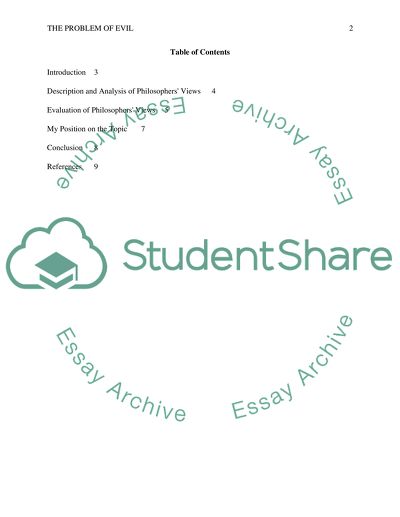Cite this document
(“The Problem of Evil Essay Example | Topics and Well Written Essays - 1750 words”, n.d.)
Retrieved from https://studentshare.org/philosophy/1468870-the-problem-of-evil
Retrieved from https://studentshare.org/philosophy/1468870-the-problem-of-evil
(The Problem of Evil Essay Example | Topics and Well Written Essays - 1750 Words)
https://studentshare.org/philosophy/1468870-the-problem-of-evil.
https://studentshare.org/philosophy/1468870-the-problem-of-evil.
“The Problem of Evil Essay Example | Topics and Well Written Essays - 1750 Words”, n.d. https://studentshare.org/philosophy/1468870-the-problem-of-evil.


